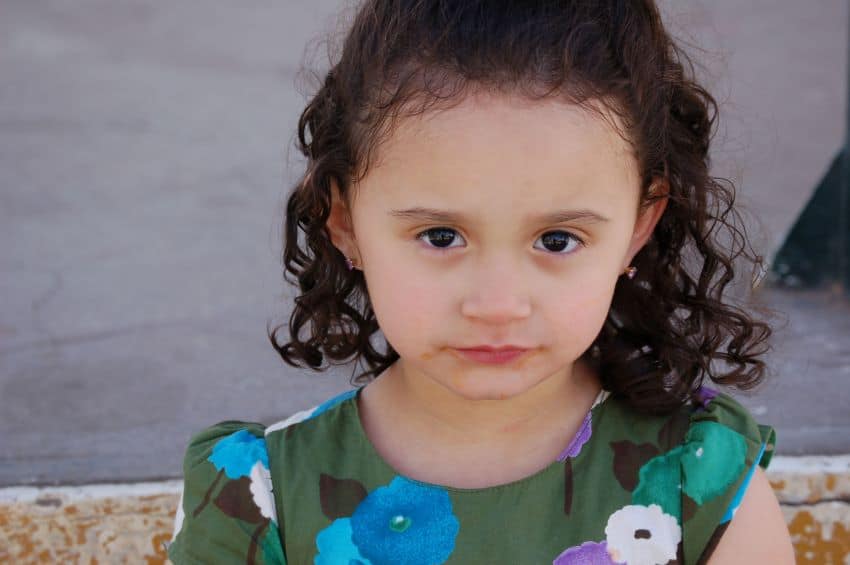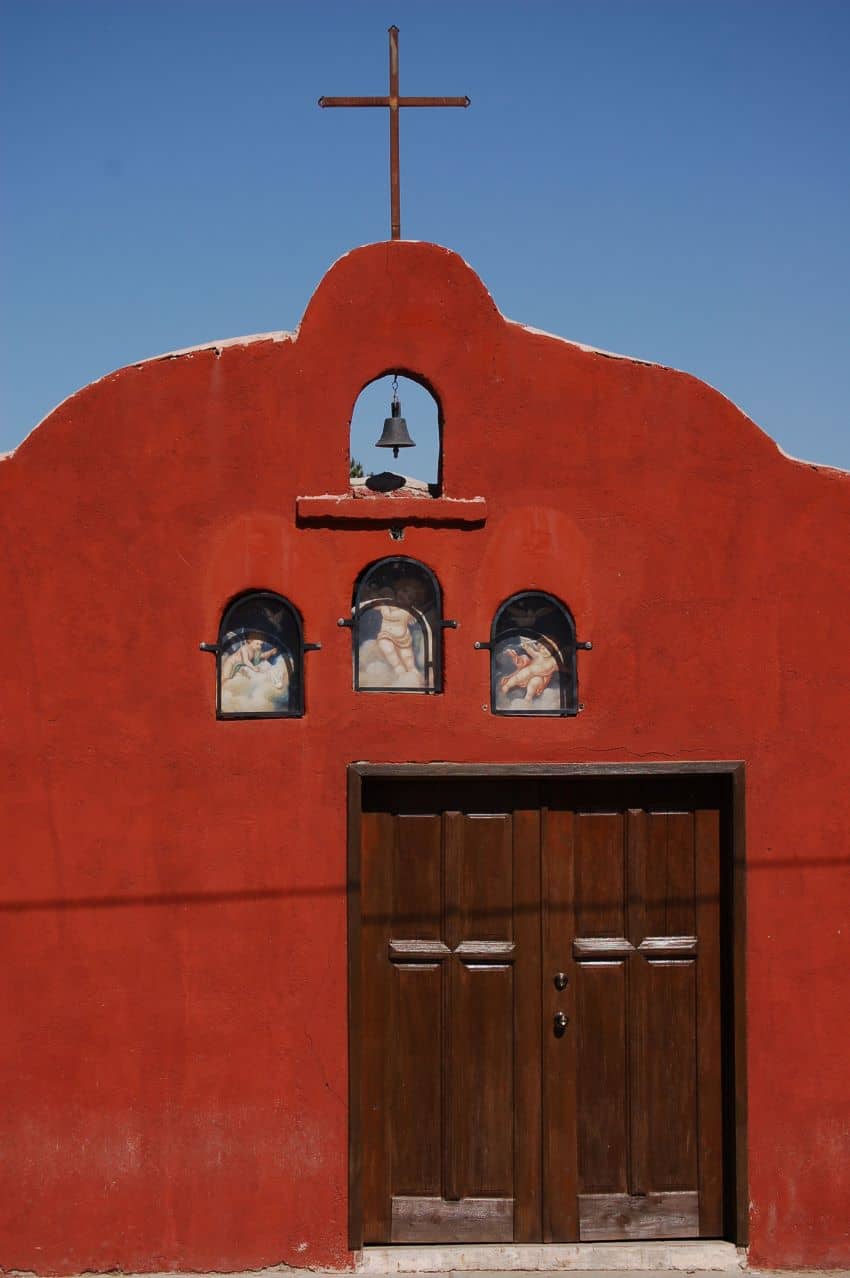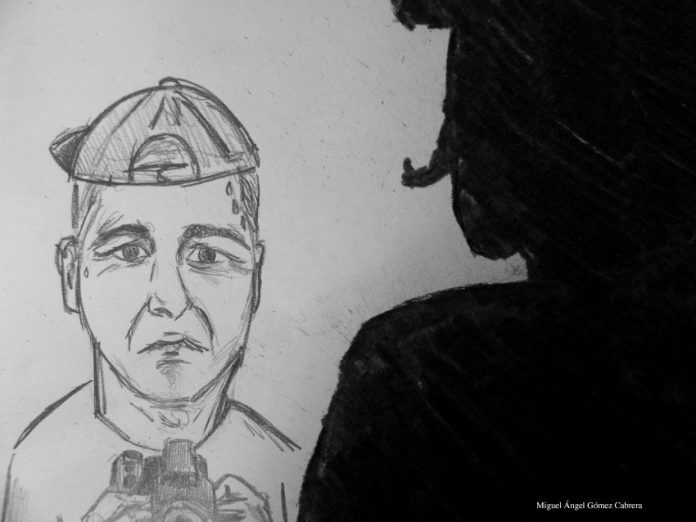It was Easter Sunday morning in Casas Grandes, a small pueblo in Chihuahua.
I’d just arrived after spending the previous two weeks photographing in Mata Ortiz, an even smaller village about 20 miles away that’s world-famous for its pottery. I was hoping to photograph something on Easter Sunday, and since there are processions in every city and pueblo in Mexico during Holy Week, I figured I had a pretty good shot. But, apparently, there were none in Casas Grandes. At least none I could find out about. So, with nothing to do, I lay in bed, trying my best to come up with a reason to get up. When I heard mariachi music, I figured, “It’s Easter Sunday, there’s mariachi music; it must be a procession.”
I grabbed my camera, hung it on my shoulder and headed out. I don’t take photographs without permission and always made it a point to hang my camera on my shoulder so people would know why I was there. I learned on this particular Easter Sunday that that’s not always a good idea.
I followed the music to a small church a couple of blocks from my room. As soon as I arrived, it was clear that something was off. Sure, there was a mariachi band playing in front of a lovely little red church, but there seemed to be an awful lot of young men standing around looking very pissed off. Didn’t seem like much of a celebration.
A small group of women stood next to the band, chatting with them between songs, and I was about to cross the street and ask them what was going on when I felt someone standing behind me. Actually, I probably smelled the alcohol before I sensed his presence. When I turned around, I found myself staring into the chest of a very large man wearing a cowboy hat that shaded his eyes, making him appear even more ominous, and a plaid shirt that was a bit too tight, making him seem even larger. A mustache drooped over his upper lip. He looked down at me, and if people really could breathe fire, this guy would have turned me into a cinder.

“Are you a tourist?” he fairly spit out.
“No,” I answered.
“Then who are you?” he demanded.
“I’m a photographer from the United States,” I said and then, not too intelligently and with just a little too much attitude, added, “Who are you?”
“I’m a member of the family. What are you doing here?”
“I heard the music and thought it was a procession for Easter.”
“We always bury our dead with music.”
That definitely got my attention. At the time of this event, my Spanish was still a work in progress, and I constantly cursed myself for not working on it harder. I vowed to redouble my efforts if I survived this situation and fervently hoped that I wouldn’t say anything insulting or stupid. I decided to keep it as simple as possible. “I’m very sorry. I didn’t know it was a funeral,” I said.
The sidewalk we were standing on was slightly sloped and, of course, I stood below him which made me feel even smaller. It really wasn’t steep but, because I was so nervous, every time I tried to step up so my head would at least be level with this guy’s shoulder, I slid down. I don’t know if I looked ridiculous, but I felt ridiculous.
I eventually succeeded in getting up the incline and stood next to him. I kept trying, with my limited Spanish, to explain my presence, but my bone-dry mouth was making that even more challenging. The fact that several of the pissed-off-looking young men were edging closer didn’t ease my sense that things could go very badly very quickly.
“I don’t photograph without permission,” I continued, “and I don’t want to photograph a funeral.”
I probably apologized another half-dozen times. He seemed to relax a little and asked where I was from. I said New York. That broke the tension — everyone loves New York — and he said he’d worked in the U.S., on a farm in Michigan. We talked for a few minutes longer, and it actually went quite well. Considering. I mean, I was still alive.

I asked him who died. “My brother,” he said.
“I’m so sorry,” I said. “That’s terrible. I don’t want to bother you, so I’ll be going now.”
We shook hands, and as I turned to go, he said, “Be careful. Life is short.”
As I walked down the street, I noticed several police and army vehicles, something I thought was a little unusual for a funeral. A young man called out to me as I passed by, but instead of stopping, I quickened my pace. That seemed to be the smart thing to do. I stopped in a small store a couple of blocks away, and although I hadn’t smoked in years, I bought two single cigarettes — sueltos, they’re called in Mexico — and a Coke. I went to the park across the street and sat on a bench.
I wouldn’t learn until later that day that the funeral was for a drug dealer — the man’s brother — who’d been shot dead the day before. He’d been shot 20 times. But even without knowing that at the time, the encounter was so tense that I found my hands shaking as I stared at the cigarette.
I looked up and saw, a few feet away, a little girl dancing. She had curly black hair and large dark eyes and wore a green flowery dress and a big smile as she twirled around, not a care in the world.
Our eyes met. She stopped dancing and walked toward me. Without hesitating, she planted a kiss on my cheek and then, smiling, danced away.
Joseph Sorrentino, a writer, photographer and author of the book San Gregorio Atlapulco: Cosmvisiones, is a regular contributor to Mexico News Daily. More examples of his photographs and links to other articles may be found at www.sorrentinophotography.com He currently lives in Chipilo, Puebla.
